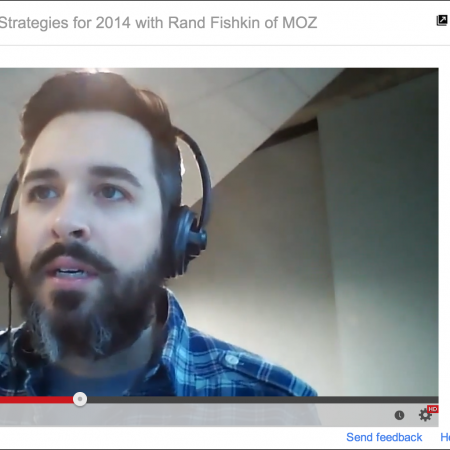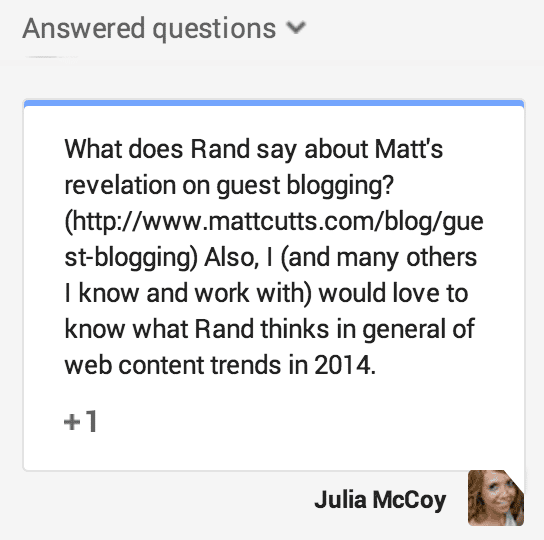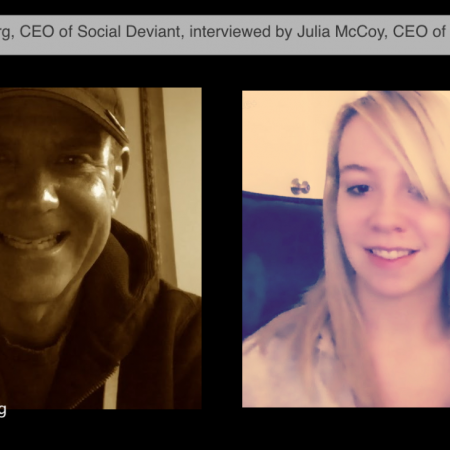
The Story Behind Express Writers (As We Celebrate 3 Years)
So, Express Writers has been around now for three years. This blog, by the CEO (Julia), takes a look at our crazy journey. I hope you’ll be inspired; I think you’ll be amused; if anything, it will be a fun read. I promise. And if you’re here reading our celebratory blog today, there’s probably a 95% chance you helped in our success somehow, from giving our CEO a handshake to buying our content or writing it. And since you’re probably a little bit invested (or a lot), it’s worth a read.
Express Writers was launched mid-May of 2011; the launch was not funded, invested or marketed by a third party; total costs to launch were kept under $170; and the single person responsible was myself, a 20-year-old female who dropped out of college to leave a nursing degree and pursue her passion, copywriting.
Who Is Julia?

Naturally, I was an inspired young person, with a natural talent in computers and writing. In a pastor’s family, and taught to be quiet in public, I loved to come up with ideas on my own and implement them. How did the change from what I was doing to what I love doing happen? I simply woke up one day and asked myself, “What does Julia love to do the most?” And I was inspired and motivated to find the answer—not just think about it. I knew the answer when I looked back. My passion was writing.
To understand my passion, you’ll need a glimpse at home-schooled, four-eyed, 8-year-old me. I had started writing a novel that was 200 pages when it was completed by the time I was 12 (with a subsequent trilogy in the works). It was a medieval fiction tale about a knight, incorporating my love of the post-Dark-Ages and a lot of research I had done about that era. Instead of playing in the yard every summer afternoon, I was in the house drumming my ideas out on our Windows ‘95 computer when I was 11 years old. I dreamed, ate, slept that story. I created it; I loved my characters; sometimes I was too caught up in it. To get some outside expertise on my writing, I was involved at Writing.com, an awesome online community where writers can sign up and publish their own portfolio, feature their writing online, start networking and meeting fellow writers. (I would recommend this resource primarily for fiction and peer networking: you can’t earn anything from it.) I had an established account there and was getting book reviews for sample chapters, talking to people who were three times my age. They were reading my book samples and loving it. At least 10 people said they would buy it as soon as I published it. When the book was completed after countless stages of re-reading and revisions with my family and adult friends of my family, I started mailing copies out. I sent my book in to at least 20 writing contests, only to be rejected by all. (One sent a lovely letter saying their entire staff read the book and loved it, but I needed to be a little older than 12.) I lined up a publisher after researching over 100 of them: I was going to use Lulu.com, a self-publisher. I wanted to do this myself. (I had a really hands-on type of entrepreneur-mindset from that age.)
The big morning comes—I woke up to work on last touches, my dad and mom are there in the room and they’re talking about my publishing goals. I insert my 3 ½ floppy, where my book was stored, in the drive: those horrible beep sounds erupt from the evil Windows 95 machine like a mad cow on steroids…and I read an error message that states, Floppy drive has failed. Reformat? Reformatting meant wiping the drive. My dad jumped to the computer; we both tried to work on every idea to recover the drive contents—but alas. It had failed. The book was gone.
Fast-forward a little. To be accredited in homeschooling in Pennsylvania, homeschoolers had to take huge, long tests every 5th, 8th, and 12th grade. They included SAT and ACT content, and it took about 7 hours to sit down and get through them. I scored past-college grades on every English test, in each grade level, from reading comprehension to creative writing. I loved doing these tests. They weren’t a test; they were fun. When I took my entrance tests for college, I scored out of every single English class requirement except the mandatory one.
Year 2005. When I was 14, I started two companies, a local cleaning services company and a computer repair company, employing myself. I walked door-to-door on summer days to market them. I did better with the computer repair company; I knew how to troubleshoot computers and fix just about any minor issue, from network issues to programs not installing. (Minor stuff.) With the computer repair company, I earned about $5,000 my first year, driving to local’s houses and fixing their computers. I only got one gig with the cleaning company before I decided to drop it. (I wasn’t the best cleaner in the world.) I also started working at McDonalds after I got a permit for underage workers (that little blue card).
Year 2007. I was 16. I learned HTML code myself; I helped build my dad’s website; I was a moderator on several forums; and I started getting into paid surveys online, found a way to make money out of them (you had to signup without getting scammed), and earned over $300 a month that way. I did mystery shopping and all those types of gigs. I looked into MLM and pyramid schemes and didn’t like them too much. I connected with lots of encouraging entrepreneurs who gave me so much advice and hope through the jobs’ online forums. When I was 17, I started nursing and was almost full time at McDonalds; I got drowned in nursing and McDonalds, and subsequently gave up other things that my parents told me were “distractors” that year.
How I Started Express Writers
By the time I was 19, I knew two things: I loved to be an entrepreneur and create things that were 100% my idea… and I wanted to work on an idea till it was happening and real and succeeding, not just a dream. It was something I couldn’t get out of my heart. My big dream was to do this and succeed—with a six-figure salary. Yes, I had hopes that were bigger than the town I grew up in. Secondly, I personally loved to write and was very good at it. I hadn’t connected the two things (entrepreneurship and writing) yet.
The Nitty-Gritty, Car Mechanic Type of Labor Where Express Writers Was Born… 2011 was the year I taught myself copywriting. The writing that you can sell and people can use for their SEO optimized websites, not just writing for fun. I dug deep in the online freelancing world in late 2010, getting up at 4:30 am to do this. This real world was rough. I didn’t know much at all when I dove straight into it. When I started getting work, I had no local clients, and no one even hired me as retainer; my “clientele” came and went. They wanted a resume, and nothing else; 50 articles, and nothing else; 1 press release, and nothing else. It was a fighting war to find jobs those first months. There were so many nights I went to bed not sure if I was going to get paid the next morning. I really tasted failure time and time again—I got so many rejections—but always, always, things pulled through to be hopeful enough for me to continue (sometimes, barely). I thank God for that today. There were weeks when I was writing 50 articles per day. Yes, you read that right, not a typo—50. I started getting carpal tunnel down my fingers and wrists from that. The worst part was that in these early days I thought $1.25 per article was a lot of money. I probably started writing my first “freelance articles” getting paid around .50c/pay per original article. (Yes, horrifying…but remember, it was pretty much how I learned to copy write. Today I don’t even grudge those employers their rip-off schemes. At least I learned my trade that way. And I heard it all—“here’s a .25c raise coming your way! We are the best employer you’ll ever get!” among other lies.) But finally, by February 2011, I was earning enough to pay my parents’ rent charges, gas to school, and cell phone bills monthly. In March 2011, I quit McDonalds.
I might as well add this in! Here’s a brief guide that I wish I had at the start of how to get started as an online writer (note, this opportunity is a flourishing one). Skip to “A Failure Brought About Express Writers“ if you’re not the online writing type (it’s ok, you can be our client).
- First, teach yourself something about online copywriting. Don’t apply to a first position without studying up a bit. Copyblogger offers a lot of great resources that are a good start (look under Articles and Ebooks—I would recommend trying to read all their e-books, which are fairly short and sweet).
- Sites like Craigslist.org (look for your local town, then go to Gigs > Writing), Problogger.net, Indeed.com (look under writing/copywriting as a job keyword), and LinkedIn Jobs (look for keywords like writing, copywriting) are the top places to look for jobs. I found 90% of my writing jobs on Craigslist my first year. Just watch out for the people who are paying “pro bono” (meaning not at all). (Two tips you won’t read anywhere else. Problogger often lists unique jobs for specific skills you might be a PERFECT fit for: like a gaming writer 50 or older, or a young female fashion writer. Jobs that list characteristics like these WON’T hire anyone else. LinkedIn tends to have the BIG names (GE, Kohl’s, etc.) who are looking to hire individual freelancers, not agencies—you have a good foot in the door if you’re one copywriter with a polished LinkedIN resume.)
- Get hired by an agency, like mine (Express Writers). An agency position could be a long-term career or just a foot in the door. You’ll get to work alongside people who can give you advice when you need it, and sometimes will offer resources and training.
A Failure Brought About Express Writers. A failure made Express Writers happen. Here’s how. Late March 2011, things were picking up for me with freelancing. I grew a small reputation for being one of the few on-time, American, excellent-quality, and reliable writers available on the freelance work platforms. People started referring me to others. I was handling college and my freelance work, which was slowly becoming a disaster, because my writing clientele was growing and growing. I was really overwhelmed trying to handle both nursing and writing, trying to wrap up writing jobs, handle new ones, and study and pass all my tests for nursing. By mid-2011, my second nursing semester was coming to an end. It abruptly ended by my clinical instructor bringing me in her office the last day and telling me I had failed my clinical class and the semester. I had not a single “unsafe” and no specific reasons to have failed; she simply told me she could tell my heart wasn’t involved. She said when I talked about my company on lunch breaks; I had so much passion and excitement. Why don’t I consider focusing on that? That was really hard to hear that day. I had a 1-year period to retake the semester and keep my place without having to restart everything again from first semester. After going home, crying my eyes out, listening to my dad tell me I failed my studies, failed because I had deserted my calling, and more, I wiped my eyes dry…and considered what to do. There was no question really in my heart—I wanted to pursue my company, drop every other work calling, and mold and build that beautiful little thing to success. This was a strong, heartfelt passion. My clinical instructor was right.
The First Year (2011). The name Express Writers was coined on oDesk in about 10 minutes, early May of 2011. Why did I create it? I really wish I had a more inspired idea to tell you. I’m ashamed to say, it was a short-term idea. I simply woke up one day to way too many orders in my email inbox. Slammed with work, I needed help. There were writers like me struggling out there; I could hire them, build an agency of excellent writers, and make a small profit. I created an “oDesk company profile”; and Express Writers made its first debut online appearance. I put the name in Edwardian script and turned that into an official logo. (To me, that was the most beautiful font in the world. Don’t laugh—at least it wasn’t Papyrus!)
May 2011 was a big month. I failed nursing, and launched my business. Remember how I said I kept my launch costs under $170? I had found a developer in the Philippines who charged me $80 to theme and code my website, this one:
I bought my first website domain for around $7; hosting, my first month, for about $3; my fictitious name from the Feds for $75; a professional photograph of myself for free from my sister, this one:
…and then sat down for three 12-hour stints at the computer to write all my website copy and finish coding it to completion, before launching it May 25-26, 2011.
I let my small subscriber list of clients know my company had launched, and started marketing my website—through my own writing, of course. I set goals to work on rankings; I targeted long tail keywords and wrote at least 3 blogs and 3 E-zine articles a week to market it; along with writing 50% of my clientele orders myself, outsourcing the other 50% to my baby team of no more than 8-10 people the first year. There was some writing I thoroughly enjoyed, including blogging for Hyundai and GM dealers where I researched and wrote about new car models weekly. I can still tell you all about the Hyundai Genesis. Besides, I needed to write it myself to pay the most of my bills, I couldn’t survive on $2-3 profit per article for 20 articles a week.
Hiring…And Firing. April and May, I tested the waters. I learned how to hire “contractors” and researched things like registered as a sole proprietorship and getting a fictitious name. When I started looking for and then hired my very first team member, Aimee, I had no idea she’d still be with us to this very day. (She writes technical and marketing content, and is featured on our About page.) This doesn’t mean hiring my other writers was easy. I had writers who were furious with me for not paying them top dollar, threatening to sue or report (which dumbfounded me); writers who caused me the loss of some of my best clients, because they didn’t deliver when they said they would; all in all, about 100 fires for my first 10 solid hires.
But these were the months I decided I wanted to focus on a business in this wonderful industry of copywriting. Going the route of hiring people and beginning a company, instead of pursuing individual freelancing, seemed like the best long-term option for me. One day I knew I would get honest-to-God tired of writing so many articles a day, I thought. (I still write for our Express Writers blogs, and probably won’t want to ever give that up.) I wanted to work a lot less while employing an amazing array of writers and being able to connect them with great clients. One criteria: the writers had to be at least as good as me, if not better.
2011-2014: A Fast Road on Full Throttle. Things progressed rapidly. I marketed with very little money, posting Craigslist ads, and using all the freelance work platforms (Elance, oDesk, Freelancer) to scour for hundreds of jobs daily and apply to them all. I had a goal of sending about 200 emails daily, posting about 5-10 Craigslist ads, and applying to about 50 jobs. Craigslist ads, believe it or not, brought me about 60% of my clientele the first year. This was the full-color Craigslist ad I created for my postings, using Photoshop and simple text:
My first big client was Enigma Software, who needed monthly technical articles. (I found them on Amazon…long story.) My second biggest clients included a tax attorney firm and a marketing department in California. In 2012, I managed everything myself and worked on growing my company (easily putting in over 60 hours a week), employing not more than 20-30 writers.
My first staff hires were not until 2013. In February 2013, I hired my first full-time single manager for the team, Tamila. She put in 40 hours a week and when I realized that one person was just not enough, I let her go and hired two Coordinators in April 2013, sisters Annie and Alecs. I found them on Elance, and they had been my writers (very much in-demand, talented writers) for a month before they reached out and asked if I was hiring staff. That was God aligning things, because I found out they had just been let go from their full time job with a bigger agency than mine (which gave them the perfect experience for my company). They are still with us today, full-time, and not a single day goes by but I feel grateful for them, their work ethic, reliability, and heartfelt involvement. I hired our first Staff Editor in April of 2013; and since then, we’ve hired about five Staff Editors. Our current Client & Sales Coordinator, Sarah, was hired in November 2013.
A little stats on these “fast years”: In 2012, I doubled 2011’s overall income, output and efforts, while managing everything on my own with about 20-30 employed writers. In August 2012, I met my husband and COO Josh McCoy, when he hired me to write his website content on oDesk. (We were married January the next year!) In 2013, I (once again) doubled the previous year’s record; hired my first staff; and employed 30 writers. In 2013, it was a triple output; and we were employing over 50 writers and 5 staff. And in late 2013, I made a big move and “fired myself” from all freelance platforms, hiring a full time sales representative to cold call our target clientele, SEO and digital agencies as a marketing replacement. It was a scary move for me, since freelance platforms accounted for at least 25% of Express Writers’ clientele and income. However, I had come to discover that freelance platforms (Elance, oDesk, Freelancer being the tops—and now one company is merging to own all of them) are quite honestly a pitfall of cheap, bad, and poor quality employers, as well as terrible freelance support on the part of the platforms themselves. Since leaving these poor quality workforce areas, I am blessed to report we had the best month we’ve ever had, this February 2014.
That’s the story, in a nutshell. Well—not so much a nutshell. (Sorry about that.) And if I’ve left you wondering a little how I got from 2011 to today in terms of client growth…it’s just been a steady journey of both finding clients and hiring and firing team members. I’ve video-Skyped with managers in Europe with the Bank of Austria, whose content we are still on retainer writing; I’ve had the opportunity to interview brilliant industry minds; worked with Wal-Mart and Johnson & Johnson, and decided to fire the latter because they didn’t pay and took a month to review 50 words; and had the pleasure to work alongside some amazing people, who far surpassed my hiring criteria of “at least as good quality as myself”. (That stupefies me regularly still: How did 23-year-old me become the employer of much older, much talented and creative persons? And I love that I can hand out a work-from-home, awesome opportunity to these greatly deserving recipients.)
What’s Ahead. Today, our team has created over 10,000 pages; 5,000 projects; served worldwide clients; and we have over 60 expert writers and editors employed. We celebrate a third year in an industry that has expanded out of proportions we expected: today is quite the day of content marketing. The value of content is ever increasing. Writing exceptional content that is shareable, readable, and creative is what content marketing means today – and there’s no question about a need for talent in the writing industry, when you look at that criteria.
This year, we have big things on the works…our Content Shop, neck-deep in custom development, content services continually being refined, team training, and a brand expansion and re-launch with the launch of our Content Shop. We hope to sell even more premium level quality as we re-launch. We’ve had quite some development curveballs with the custom build platform for the Content Shop, which means more time necessary before we launch it – but it will happen (that’s a promise)! Last but not least, I am expecting my first baby with hubby any day now—if she arrives this week, it will be just that much more icing on the cake!
Here’s to another great year ahead!








